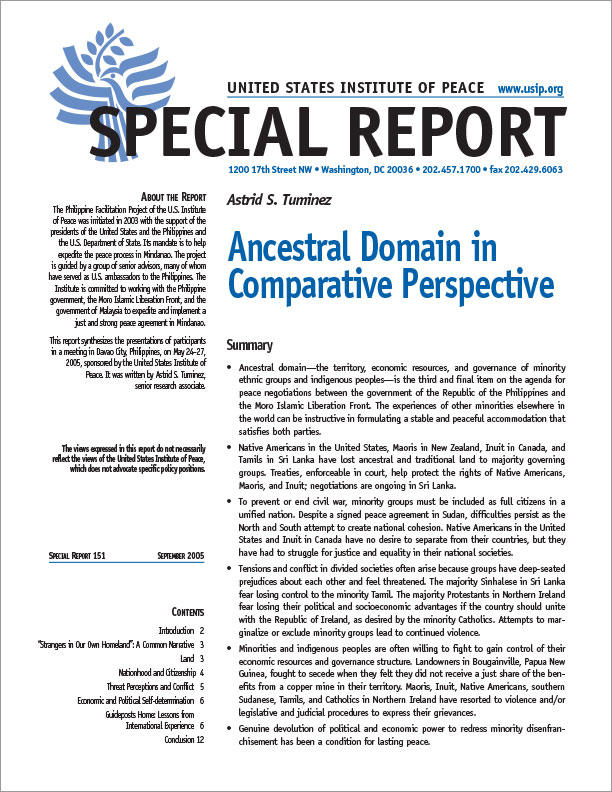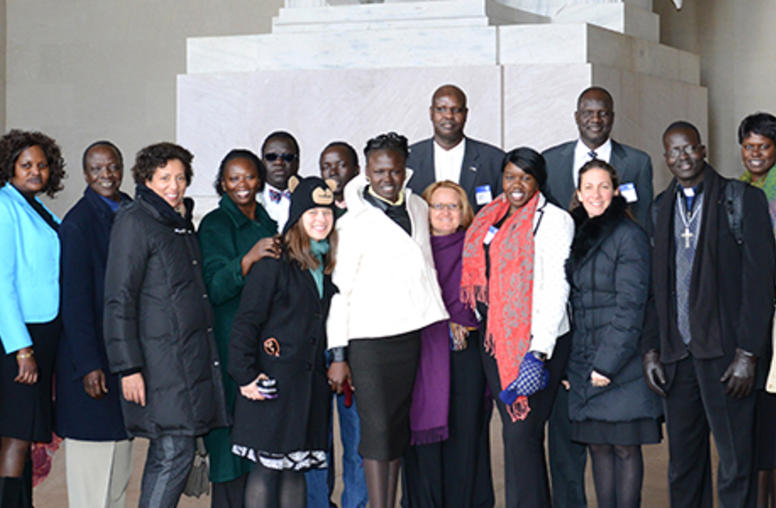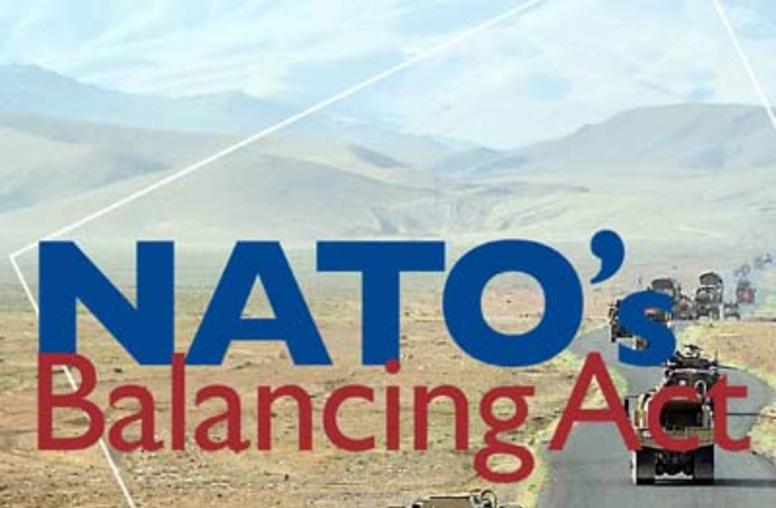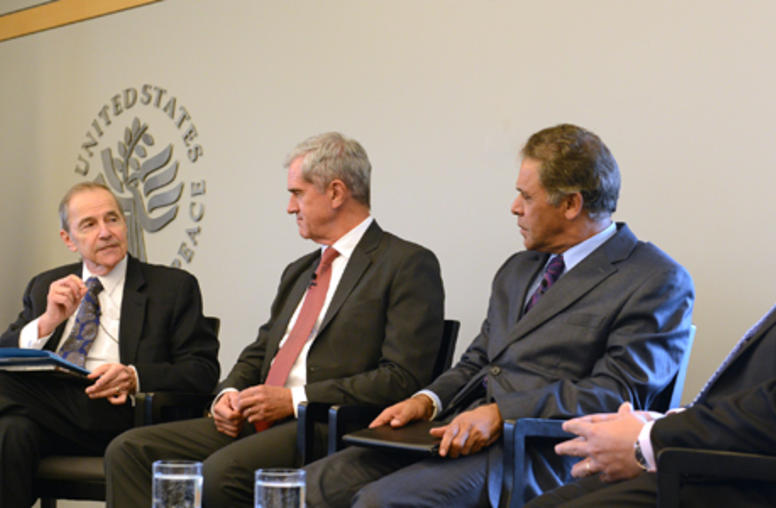Ancestral Domain in Comparative Perspective

Summary
- Ancestral domain—the territory, economic resources, and governance of minority ethnic groups and indigenous peoples—is the third and final item on the agenda for peace negotiations between the government of the Republic of the Philippines and the Moro Islamic Liberation Front. The experiences of other minorities elsewhere in the world can be instructive in formulating a stable and peaceful accommodation that satisfies both parties.
- Native Americans in the United States, Maoris in New Zealand, Inuit in Canada, and Tamils in Sri Lanka have lost ancestral and traditional land to majority governing groups. Treaties, enforceable in court, help protect the rights of Native Americans, Maoris, and Inuit; negotiations are ongoing in Sri Lanka.
- To prevent or end civil war, minority groups must be included as full citizens in a unified nation. Despite a signed peace agreement in Sudan, difficulties persist as the North and South attempt to create national cohesion. Native Americans in the United States and Inuit in Canada have no desire to separate from their countries, but they have had to struggle for justice and equality in their national societies.
- Tensions and conflict in divided societies often arise because groups have deep-seated prejudices about each other and feel threatened. The majority Sinhalese in Sri Lanka fear losing control to the minority Tamil. The majority Protestants in Northern Ireland fear losing their political and socioeconomic advantages if the country should unite with the Republic of Ireland, as desired by the minority Catholics. Attempts to marginalize or exclude minority groups lead to continued violence.
- Minorities and indigenous peoples are often willing to fight to gain control of their economic resources and governance structure. Landowners in Bougainville, Papua New Guinea, fought to secede when they felt they did not receive a just share of the benefits from a copper mine in their territory. Maoris, Inuit, Native Americans, southern Sudanese, Tamils, and Catholics in Northern Ireland have resorted to violence and/or legislative and judicial procedures to express their grievances.
- Genuine devolution of political and economic power to redress minority disenfranchisement has been a condition for lasting peace.
- Past conflicts over ancestral domain have shown that factors in a peaceful resolution must include negotiations for a peace treaty that includes specific implementation provisions; recognition and respect for minority cultures and values; some minority ownership or interest in ancestral lands and the resources thereon; unity within the minority group; assistance from outside, neutral parties; a long-term perspective in negotiated settlements; and recognition of potential adverse consequences for other groups affected by any settlement.
About the Report
The Philippine Facilitation Project of the U.S. Institute of Peace was initiated in 2003 with the support of the presidents of the United States and the Philippines and the U.S. Department of State. Its mandate is to help expedite the peace process in Mindanao. The project is guided by a group of senior advisors, many of whom have served as U.S. ambassadors to the Philippines. The Institute is committed to working with the Philippine government, the Moro Islamic Liberation Front, and the government of Malaysia to expedite and implement a just and strong peace agreement in Mindanao.
This report synthesizes the presentations of participants in a meeting in Davao City, Philippines, on May 24–27, 2005, sponsored by the United States Institute of Peace. It was written by Astrid S. Tuminez, senior research associate.
The views expressed in this report do not necessarily reflect views of the United States Institute of Peace, which does not advocate specific policy positions.



